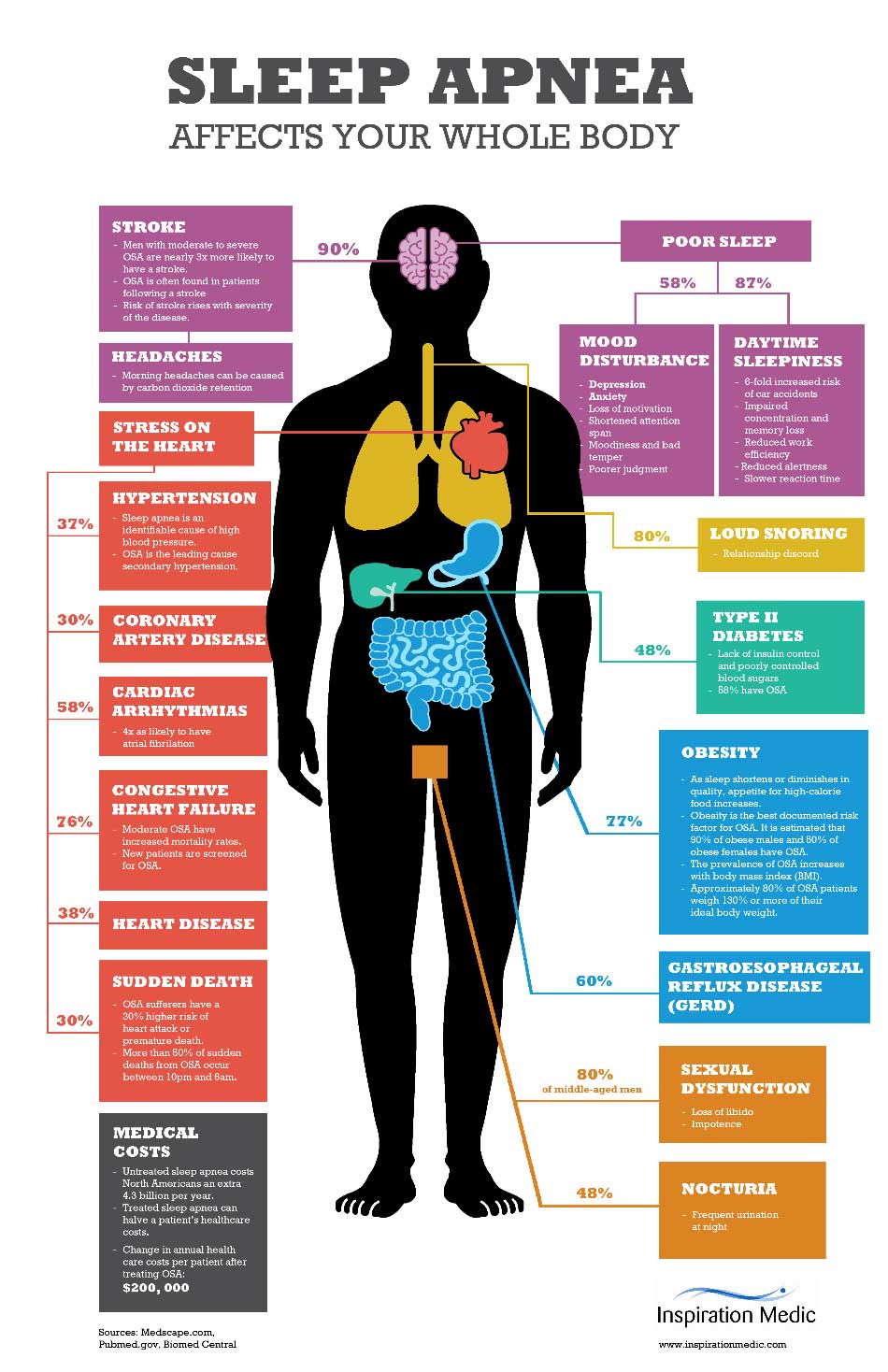Sleep
The word “apnea” means “without breath".
There are three types of apneas: obstructive, central and mixed. The most common type is Obstructive Sleep Apnea (OSA) which occurs when the muscles in the back of the throat fail to keep the airway open, despite efforts to breathe. The breathing pauses occur repeatedly during sleep and lasts at least ten seconds at a time for a minute or longer

Obstructive Sleep Apnea Explained
Obstructive sleep apnea can be considered one of three levels depending on the number of breathing and sleep interruptions nightly:
- Mild OSA- The sufferer experiences 5-14 episodes of interrupted breathing per hour.
- Moderate OSA- The sufferer experiences 15-30 episodes of interrupted breathing per hour.
- Severe OSA- The sufferer experiences 30 or more episodes of interrupted breathing per hour.
Many people may not even realize they have obstructive sleep apnea and are only aware of the interrupted sleep by a concerned bed partner telling them of their nightly breathing cessations. Others may be aware that they sleep poorly or frequently wake in the night, but may not understand the cause or the potential consequences of untreated sleep apnea.
Adult men over the age of 40 and people who are overweight or suffer from obesity are at greater risk for acquiring obstructive sleep apnea.
The lack of oxygen your body receives can have negative long-term consequences for your health. These include:


